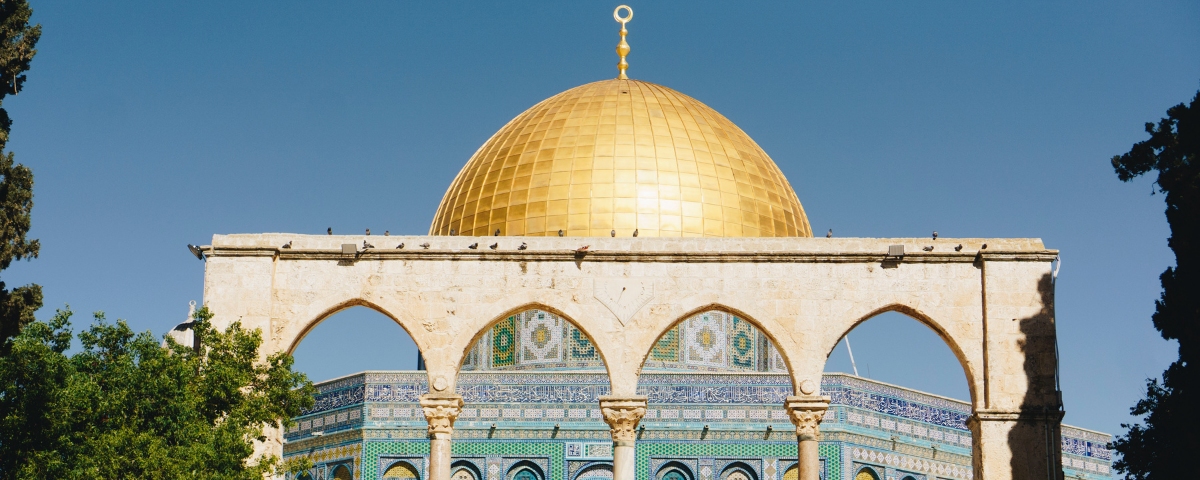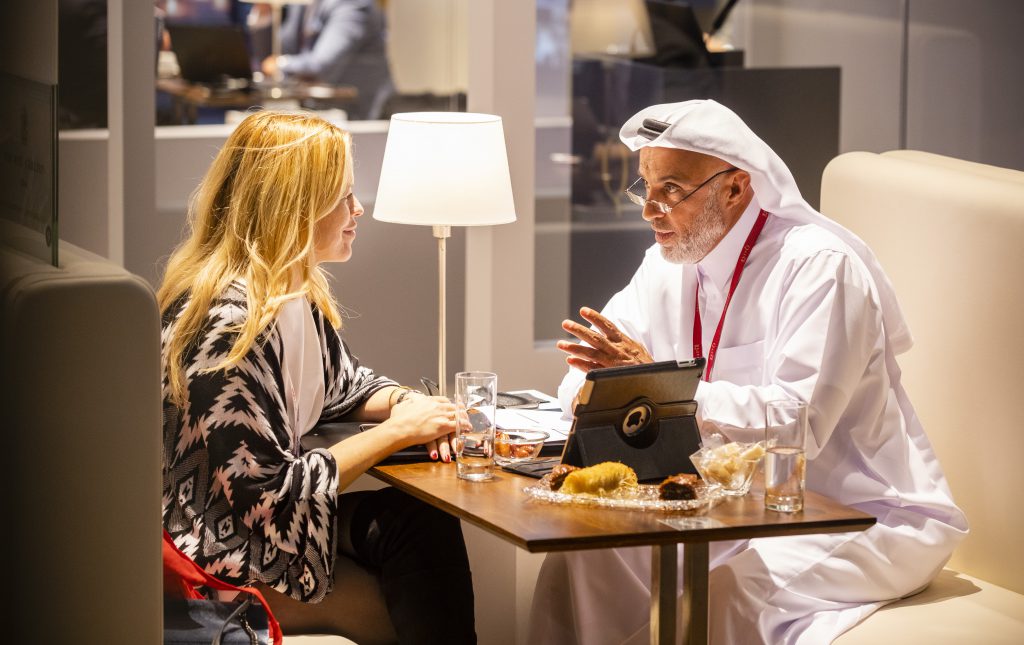Given the large expat business community in the Middle East, oftentimes meeting etiquette will be straightforward as you’ll be working with Westerners. However, for the occasions when you’re meeting with Arabs, there are a few etiquette tips it’s worth bearing in mind in order to ensure things go as smoothly as possible.
There are some key differences to conducting yourself in meetings and while mixing with Arab business professionals that you will do well to adopt. Rest assured your Arab hosts are polite and forgiving so the odd cultural faux pas is unlikely to cause major deal-breaking offense but if you truly aspire to be successful at international business, making the effort to follow cultural norms is the right way to go.
We’re here to help and in our post below we’ve outlined the principal characteristics of business and meetings in the Middle East.
Business is personal
People do business with people they trust. And trust is built on relationships. This is particularly important in emerging markets like the Middle East where a culture of getting to know each other before doing business is still very prevalent. Arabs make little distinction between personal and professional lives and as such, it is normal for most Arabs to consider a business partner, or indeed, a potential business partner, as a friend.
Face-to-face is essential
Because of the need to build a personal relationship, it is vital that you meet face-to-face to make the first steps towards establishing a mutual trust. When your meeting begins, avoid talking business straight away. An Arab business person expects to engage in small talk on a personal level before the true purpose of your business interests is even brought up.
Prepare to answer questions about your journey, your family, your health and your views of the country you are in. Have a few anecdotes up your sleeve ready to tell in an entertaining way and always ask similar questions back to show you are interested and engaged. Please note, its fine to ask questions about children, but avoid asking specifically after female members of the family, as this can cause offence in more conservative societies.
Down to business
Once you’ve completed the five minutes of obligatory small talk, it’s time to get down to business. The structure of a meeting in the Middle East can be quite different to that in the western world.
There is unlikely to be a strict agenda and the discussion may move from topic to topic and back again rather than it being a more linear process. Additionally, interruptions are considered commonplace. Often meetings in the Middle East can be interrupted with people entering the room for any number of reasons – to inform of a phone call or ask for a signature, etc. – and these requests will be performed immediately rather than waiting until the meeting is finished.
As such, it’s fairly typical for meetings in the Middle East to take place over a longer time scale than in the west, but at IBTM World, the pre-matched 1:1 format is designed to keep appointments focused and on track. If the business person in your meeting receives a phone call during your appointment however, it’s customary for them to respond, so don’t be offended.
Reputation is important
Perhaps the most important aspect of doing business in the Middle East is protecting reputation – yours, theirs and everyone else’s. For many Arabs, it is extremely shameful to ‘lose face’ in public. This means direct disagreement or contradiction of anyone in or during the meeting should be avoided.
A person loses face if you tell them they are wrong, so try and be subtle instead with suggestive phrasing such as ‘I think it will help us progress faster if we…’ or ‘I’ve tried it this way before and found it to be the most effective, so perhaps we should consider it.’ It works both ways – an Arab is unlikely to disagree with you in public as this is disrespectful.
‘Saving face’ is undeniably a kind and considerate characteristic, but it can be tricky to grasp. Visitors need to train their Western ears to notice giveaway phrases that indicate what their Arab partner is really saying. It can help to follow up a meeting with an email exchange or telephone call, as these are communication mediums that Arabs find more acceptable to express true opinions and intentions.
Understand customary dress and traditions
Your Arab business fellows may wear traditional dress, such as a long white robe known as a Thobe and a red and white checked headdress called a Keffiyeh – do not be tempted to don this traditional attire yourself as it is a symbol of heritage and you would most likely cause offence.
Dress styles vary from region to region. You will find many wear the same business and leisure attire as you, whereas others expect your dress to be very conservative with no short trousers or sleeves, especially women. Travellers to Islamic countries are advised to respect local traditions, customs, laws and religions. Make sure you are aware of what is expected of you before you travel to ensure you don’t offend locals, especially during the holy month of Ramadan and when visiting religious places.
As you can see, with a few discreet observations and modest behavioural hints, it is simple for anyone to conduct themselves gracefully while doing business in this particularly welcoming part of the world. If you would like further advice on any aspect of attending meetings and doing business in the Middle East, please contact us. We have vast knowledge and on the ground representatives on hand so we’re always happy to help.



